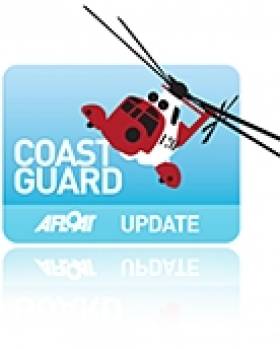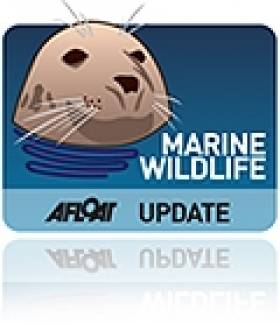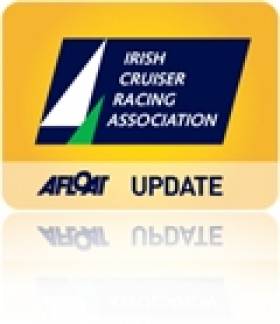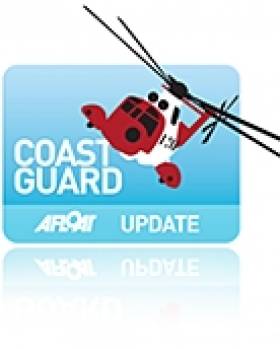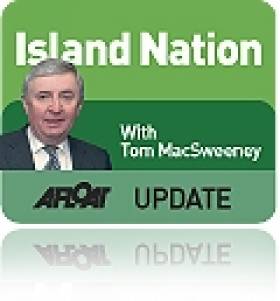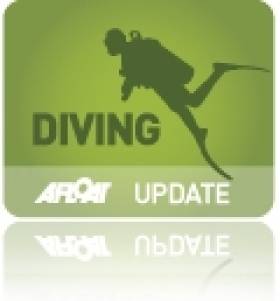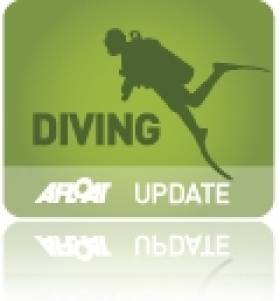Displaying items by tag: Conference
Dublin Hosts First ISAF Development Symposium in March
#DEVELOPMENT - Representatives from the International Sailing Federation's member nations throughout the world will meet at Howth Yacht Club from 17-18 March for the inaugural ISAF Development Symposium.
The aim of the two-day conference is to develop the criteria and future strategy for sail training and development within the governing body of world sailing, based on three core requirements:
- Fulfilling requirement set out in the ISAF Constitution to develop the sport and increase participation;
- Providing a structure for the sport to grow to meet expectations of the International Olympic Committee; and
- Supporting member nations in growing the sport in their own countries.
"Training is the key that will unlock and secure the future for our sport," said the ISAF in its development statement at the federation's annual conference last year.
Dublin was chosen as the host location for this first symposium as it will be hosting the ISAF Youth Worlds in July, just before the 2012 Olympic Games in London.
The international delegates, chaired by event organiser and ISAF training and development manager Dan Jaspers, will be supported by a group of ISAF representatives such as vice president Nazli Imre, development and youth committee chairman Olivier Bovyn, ISAF-nominated experts and the World Youth Sailing Trust coach, as well as invited specialist technical advisors.
More information about the ISAF Development Symposium is available HERE.
Italian Coastguard to Deliver Keynote at Dublin Conference
#COASTGUARD - Representaives of Italy's coastguard will give an account of its handling of the Costa Concordia tragedy at an international conference in Dublin next month, The Irish Times reports.
The Italian coastguard has been invited to deliver the keynote address at Search and Rescue 2012, which is being hosted in Ireland for the first time.
It is expected that this address will include a detailed account of the sinking of the cruise liner Costa Concordia last month.
At least 17 people have died and 12 are still missing after the ship ran aground on the western Italian coast. One Irish couple were among the thousands rescued from the stricken vessel.
Meanwhile, attendees at the conference - which is being hosted in the year of Ireland's charing of the EU coastguard network - will also witness demonstrations of the Irish Coast Guard's rescue helicopter fleet at Weston Airport in Leixlip.
As previously reported on Afloat.ie, Irish Coast Guard director Chris Reynolds has been charged with preparing the grounds for a permanent secretariat to be run by EU coastguard officers.
IWDG to Host European Cetacean Conference in Galway This March
#MARINE WILDLIFE - The Irish Whale and Dolphin Group (IWDG) will host the 26th annual European Cetacean Society Conference in Galway on the weekend of 24-25 March this year.
The Galway Bay Hotel will be the site for the main conference sessions, while workshops will also be held at the Galway-Mayo Institute of Technology (GMIT).
This year's gathering is being held under the theme 'Communication: Information and Ideas Worth Sharing'. Participants will be exploring communication between marine mammals as well as between marine scientists, and between scientists and the public.
As Ireland's Wildlife reports, the conference "offers a offers a great opportunity to find out more about whales and dolphins, their conservation, the cetacean research being carried out in Europe and to meet the researchers who are working to uncover the mysteries of these most enigmatic of creatures."
Registration is now open for the two-day event. For full details of the conference programme, venues and booking information, visit the European Cetacean Society Conference micro site HERE.
ICRA Hears Appeals for Greater Participation in Sailing
#SAILING – The tenth Annual ICRA Conference took place in Dun Laoghaire for the first time on 26th November in the same year ICRA was awarded the Mitsubishi Club of the Year trophy writes ICRA Commdore Barry Rose. It was a well attended event by a very representative group of sailors and club representatives from all Coasts of Ireland.
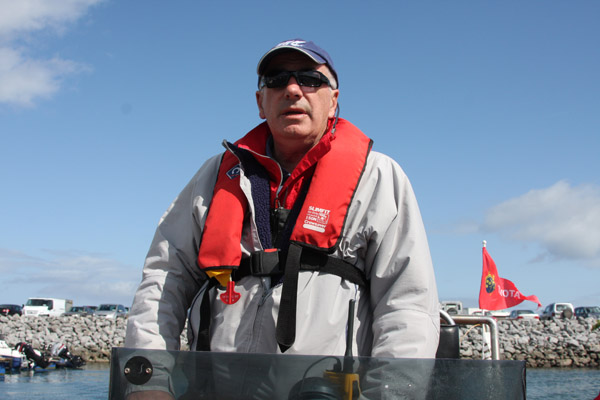
Barry Rose Chaired the ICRA Conference in Dun Laoghaire
The format this year created an inter active discussion in the morning session on Class Bands and the promotion of participation in Cruiser Racing in general. A lively, frank discussion took place with strong views being expressed by most present highlighting the problem of attracting crews to enable boats to go racing and creating access to allow those interested to go sailing to participate in the sport.
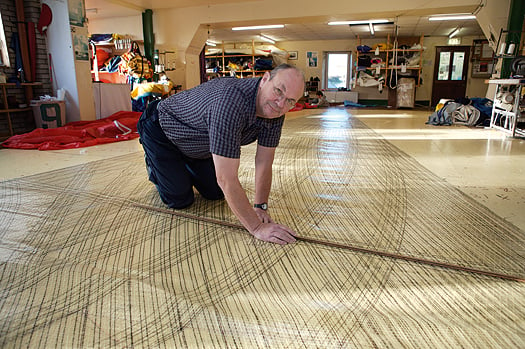
Des McWilliam spoke passionately about Irish sailing - Photo: Bob Bateman
Sailmaker Des McWilliam made a strong appeal that the future of the sport was threatened by difficulty in accessing getting afloat and sailing by the Club structures that were becoming more of a closed shop approach. Maurice O'Connell also spoke passionately on the same subject and examples were given of difficulties encountered both In Cork and Dublin in gaining access to participating in sailing and racing while boats were remaining tied up for lack of crews.
An understanding of the dilemma for the Clubs was also expressed by Flag Officers present in maintaining their facilities for those paying membership while encouraging new sailors to gain access at reasonable cost for a period.
It was agreed that all present would make every effort on a personal basis to encourage opportunities for those interested to go sailing to gain opportunities on boats and access to Club introductory offers.
ICRA will also explore creating an on line vehicle for available crews to register so boat owners gain opportunity to make contact.
There was also suggestions aired that bottom end of Class 1 should be included in Class 2 where all would have better racing.
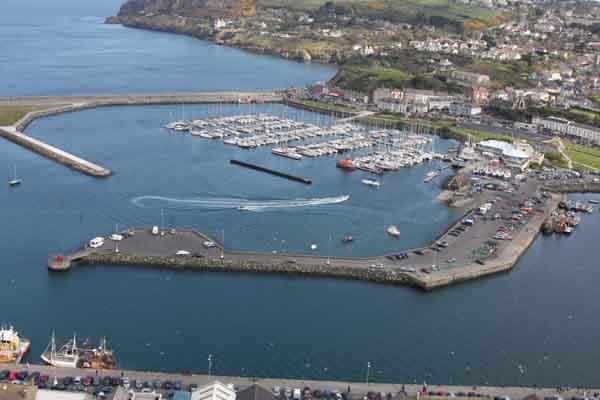
Howth, the venue for the 2012 ICRA Champs
The Royal Cork Yacht Club was complimented for running a top Class ICRA National Championships in June. Howth Yacht Club gave an update that arrangements are well progressed for an exciting ICRA National Championships in Howth 25th to 27th May 2012. The previous weekend will host the Corby Cup which will encourage those travelling to participate in Nationals and ISORA will run a feeder Race from Wales. It is hoped to announce a Sponsor shortly. Howth plan the first Race for 1600 hrs on Friday to avoid necessity for those travelling to stay over on Thursday.
The main feature of the afternoon session was a similar open forum with Race Officers Jack Roy, Henry Leonard and Harry Gallagher joining the top table for an open discussion on course types that sailors wanted and communications sailors would like with Race Officers. This was also a lively session with frank constructive exchanges which was of benefit to sailors and Race Officers alike.
The feeling of the meeting was that in addition to windward /Leeward courses sailors wanted a good variety of course types both at National Championship level but also at Regional events. Also those present strongly requested that boats over the line at starts be informed whenever possible but on strict understanding in Sailing Instructions that there be no redress in any circumstances relating to same against Race Officers.
Both these forums provided an excellent opportunity for those attending to air their views on all matters relating to Cruiser Racing and to offer ideas and this will be developed further for future conferences.
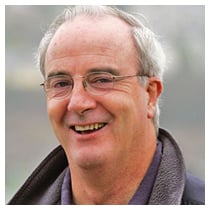
Commodore's Cup Captain Anthony O'Leary. Photo: Bob Bateman
The Commodore reported on efforts to form a team to defend the Commodore's Cup in 2012 and Anthony O'Leary brought the meeting up to date in changes to the event format and expressed confidence that there would be a positive response to ICRA 's request for declarations of interest to form a credible team to defend the Cup as is Ireland's responsibility.
Denis Noonan of Wicklow Sailing Club expressed the Clubs upset and disappointment that an Irish Club would arrange a competing event The Round Rockall Race from Galway starting on the same day as their Iconic Round Ireland Race. They outlined their plans for the 2012 Round Ireland Race and received support for their efforts from those attending. The RORC has increased their points scoring for the Round Ireland Race as further recognition of its standing in World offshore racing. Both ICRA and the ISA confirmed their support for the Round Ireland Race.

Pat Kelly's Storm is ICRA's Boat of the Year. Photo: Bob Bateman
The Conference finished with the presentation of the magnificent crystal ICRA Boat Of The Year trophy for 2011 to Pat Kelly's J 109 Storm who won the ICRA Nationals in Cork in June, The Cruiser Challenge in Dublin in August, The Howth Autumn Series and also travelled to the Scottish Series and Sovereigns Week. It was felt she embodied the spirit of a well campaigned ICRA cruiser racer. A week later Kelly became Afloat's Sailor of the month for November.
New Coastguard Command Vehicle For West Coast
#COASTGUARD - The Irish Coast Guard has received the keys to a new Mobile Incident Command Vehicle to be based in Sligo.
Minister of State Michael Ring made the presentation to Irish Coast Guard director Chris Reynolds ahead of the body’s annual conference in Westport last weekend, Mayo Today reports.
The new vehicle will be used for on-scene management of major marine emergencies aling the west and north-west coasts. It is fitted with all modern communications equipment and will be on call 24/7.
Reynolds commented: “Over the past few months we have launched five new coastguard boats and early next we will see the delivery of seven new vessels.
“This month we will take delivery of 11 new vehicles including vans and 4x4s and in the coming weeks, we take delivery of our new S92 helicopters.”
Titanic Belfast to Host Region's Largest Function Suite
Event bookings are already being taken for the new Titanic visitors' centre due to open next spring in Belfast.
The €114 million Titanic Belfast is being contructed on the Belfast Lough site where the infamous cruise liner was itself built more than 100 years ago.
The building will feature a state-of-the-art interactive museum, including a special 'flying theatre' where visitors will be suspended above a giant cinema screen.
It also boasts the Titanic Suite, an opulent function area over two floors high in the roof of the structure that will replicate the interior of the ship's first class banqueting room.
Billed as the largest function area in the region, it will have space for up to 1,000 guests for a whole variety of events, from conferences to weddings to gala dinners.
The Irish Examiner has more on the story HERE.
Conference Hopes to Bin Ocean Debris
It was very topical, because this week the Fifth International Marine Debris Conference is taking place in Hawaii, organised jointly by the National Oceanic and Atmospheric Administration and the United Nations Environment Programme. This is an attempt to deal with the increasing problem of debris in the oceans of the world.
A United Nations report revealed some pretty frightening facts to the conference. Just two kinds of rubbish make up more than half the marine debris in the world. One is predictable enough – the horror of plastic choking sea life. The other came as more of a shock. The second most abundant kind of marine litter is smoking-related. Cigarette butts and packing account for nearly half of all sea rubbish in some parts of the world, according to the UN.
About 40 per cent of the litter in the Mediterranean Sea comes from this source. In Ecuador, smoking-related refuse accounted for more than half of coastal rubbish.
Ocean debris is a severe threat to the marine eco system. It kills at least 1 million sea birds and 100, 000 mammals each year, according to the United States National Oceanic and Atmospheric Association. The general prognosis at the conference in Hawaii has been pretty grim. Things are getting worse and it is the fault of humans on land using the oceans as rubbish dumps.
As my grandson's homework showed, it takes two weeks for a bit of fruit thrown into a river or the sea to bio-degrade. It will be two months before a piece of cardboard breaks down, three months for a milk carton and matters get worse where a cigarette butt is concerned. That will take ten years to disintegrate, a Styrofoam coffee cup 50 years, a plastic bag over a hundred and the six-pack ring so often tossed overboard from boats 400 years, with the plastic bottle even worse at 450 years.
The threat and impact of marine debris have long been ignored. Perhaps it is the perceived vastness of the ocean and lack of visibility of marine debris, but the teachers in Crosshaven national school, on the edge of Cork Harbour deserve praise for making their young pupils aware of what throwing litter into a river or dumping it on a beach does.
• This article is reprinted by permission of the EVENING ECHO newspaper, Cork, where Tom MacSweeney writes maritime columns twice weekly. Evening Echo website: www.eecho.ie
Dive Ireland takes place this Weekend
CFT who are the national governing body for sports diving in Ireland will hold it's AGM and National Dive Conference at this event.
Some of the speakers include the following:
Jack Ingle Kit configuration
Barry McGill Deep wreck diving off the Donegal Coast
Nigel Motyer Underwater photographer
Tim Carey & Eoin Mc Garry Dive expedition to Asgard II in 2010
Ken O'Sullivan Irish ocean wildlife series Showing January 23rd TG4
Shane McArdle Sports Partnership and what it could mean for CFT clubs
More details and timetable HERE
Details Announced for Dive Ireland 2011
Dive Ireland, Ireland's only dedicated dive show is taking place on the 5th & 6th March. The venue
is the City North Hotel just off the M1 Northbound. Just 15 minutes from Dublin airport and 25 minutes from Dublin city.
CFT who are the national governing body for sports diving in Ireland will hold it's AGM and National Dive Conference at this event.
Some of the speakers include the following:
Jack Ingle Kit configuration
Barry McGill Deep wreck diving off the Donegal Coast
Nigel Motyer Underwater photographer
Tim Carey & Eoin Mc Garry Talk on the dive expedition to Asgard II in 2010
Ken O'Sullivan Irish ocean wildlife series Showing January 23rd TG4
Shane McArdle Sports Partnership and what it could mean for CFT clubs
MGM Boats Lift Sunseeker Award in Donegal
After a very successful conference in Donegal in 2009 Sunseeker dealers from all four corners of the world voted unanimously to host the event again at Solis Lough Eske Castle this year. Over 220 people attended last weekend and this time round the conference experienced five days of glorious sunshine in the north west.
MGM Boats, the Irish Distributor for Sunseeker received a 'Bronze Award' for outstanding achievement in Service and Support throughout a very challenging 2010 Season.
'Sales might have slowed down but commitment to After Sales Service remains a core part of our business', commented Martin Salmon of the Dun Laoghaire firm. Pictured below are the four directors of MGM Boats along with Sunseeker founder Robert Braithwaite CBE.

It is the fifth time that Sunseeker have hosted their conference in Ireland in the last ten years. Sunseeker celebrated the 50th Anniversary of the incorporation of the company on the 17th November.
Established 50 years ago, Sunseeker has built a reputation as the manufacturer of the world's finest motoryachts - vessels that enjoy a unique combination of luxury and performance. Despite the Global economic crises Sunseeker have managed to maintain a workforce of 2000 employees in the UK and continue to strive in all markets.
In June of this year Dublin based Investment Firm FL Partners founded by Peter Crowley and Neill Hughes along with a number of Irish Investors bought a significant majority stake in Sunseeker.



























